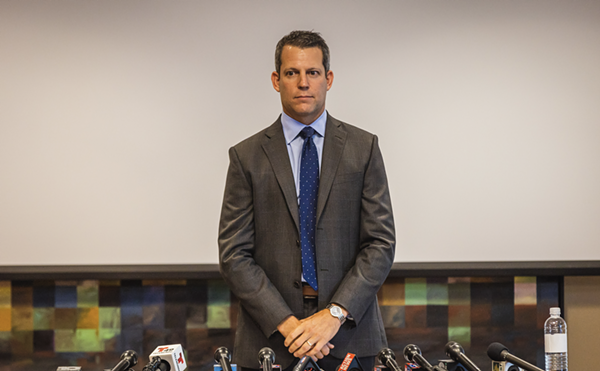Unless you're been away from Florida (or a newspaper) for the past few weeks, you know that going into the 2011 Legislative session, public employees, especially teachers, are feeling particularly besieged and concerned about what's in store for them under Governor Rick Scott and the proudly "hard right" conservative legislature over the course of the next two months.
Which is why the vote coming out of the Senate Governmental Oversight and Accountability Committee yesterday to require teachers, police and firefighters to contribute 2% of their salaries to the state retirement system has to be considered a win, since the Governor and his acolytes had been promoting a 5% contribution as an acceptable shared sacrifice in these tough budgetary times.
The Committee also voted that they would be able to cease making such payments, if the Florida Retirement System begins running a surplus.
The vote comes the same day that the entire state Senate voted for SB 736, the controversial teacher tenure bill that is escaping the scrutiny it received a year ago in the media not because it's a fundamentally better bill in the eyes of the public school community (there are some changes they like and suggestions that were incorporated), no, it's because the Senate (and House) have been working on this in committee prior to the official start of the legislative session, neutralizing a focused attack on it (The state House is reportedly going to have marathon hearings on their version next Tuesday and Wednesday).
The vote on reducing the amount of money that public employees will have to pay for their pensions comes as the New York Times reports that contrary to the perception of folks like Bill O'Reilly, state budget deficits are not going to be solved by putting limits on collective bargaining rights. The Times reports that "Despite the arguments of some Republican governors and popular perception, the places with the most unionized work forces are not necessarily the ones with the most generous pensions, according to a new study."
Wisconsin turned out to have the eighth-richest pensions of any state, replacing on average 57 percent of a worker’s pay in retirement. But the most generous state by far is Colorado — even though it has granted collective bargaining to only a fourth of its public work force. In Wisconsin, roughly half are covered, according to Unionstats.com, a database that uses Census data to track union membership.
Colorado offers pensions that replace 90 percent of salary, with generous annual compounding that more than keeps up with the current rate of inflation. (The state has tried to reduce this compounding; retirees have sued.) Colorado’s pensions are unusually rich because its public workers are not permitted to participate in Social Security — the state pension is the only one they get.
The second-richest state is New York, which replaces 77 percent of a worker’s income, even though New York’s public work force earns Social Security benefits as well. A New Yorker’s public pension benefit, combined with Social Security, replaces more than 100 percent of his pay, Mr. Schieber found.
That might appear to be the fruits of collective bargaining, since New York State grants that right to more of its public work force than any other state. But the third most generous state is Georgia, replacing 68 percent of a retiree’s former paycheck on average. And Georgia is a right-to-work state with one of the lowest rates of collective bargaining in America, just 14 percent of its public work force.
Nonunion Georgia’s public pensions are, in fact, three times as generous as those of labor-friendly Vermont, where more than half the public work force has collective bargaining. Vermont replaces just 20 percent of a retiree’s previous pay, the lowest of any state.
In Tallahassee yesterday, New Port Richey Republican state Senator Mike Fasano, who told CL earlier this week that he did support some of the draconian measures that the Legislature will vote on sharply curtailing the power of unions this session, is quoted in the St. Pete Times as saying, "Unlike the governor, this bill does not balance the budget on the backs of state workers."
But will he be able to say that about other bills he and the rest of the Legislature will be voting on over the course of the next couple of months?
















